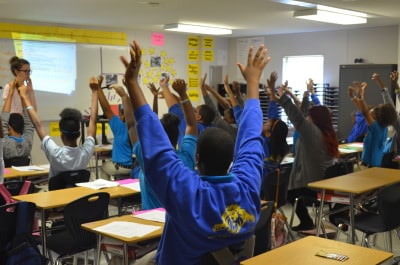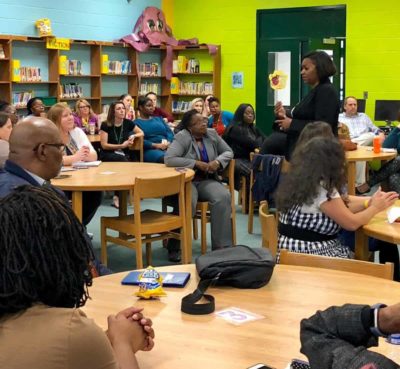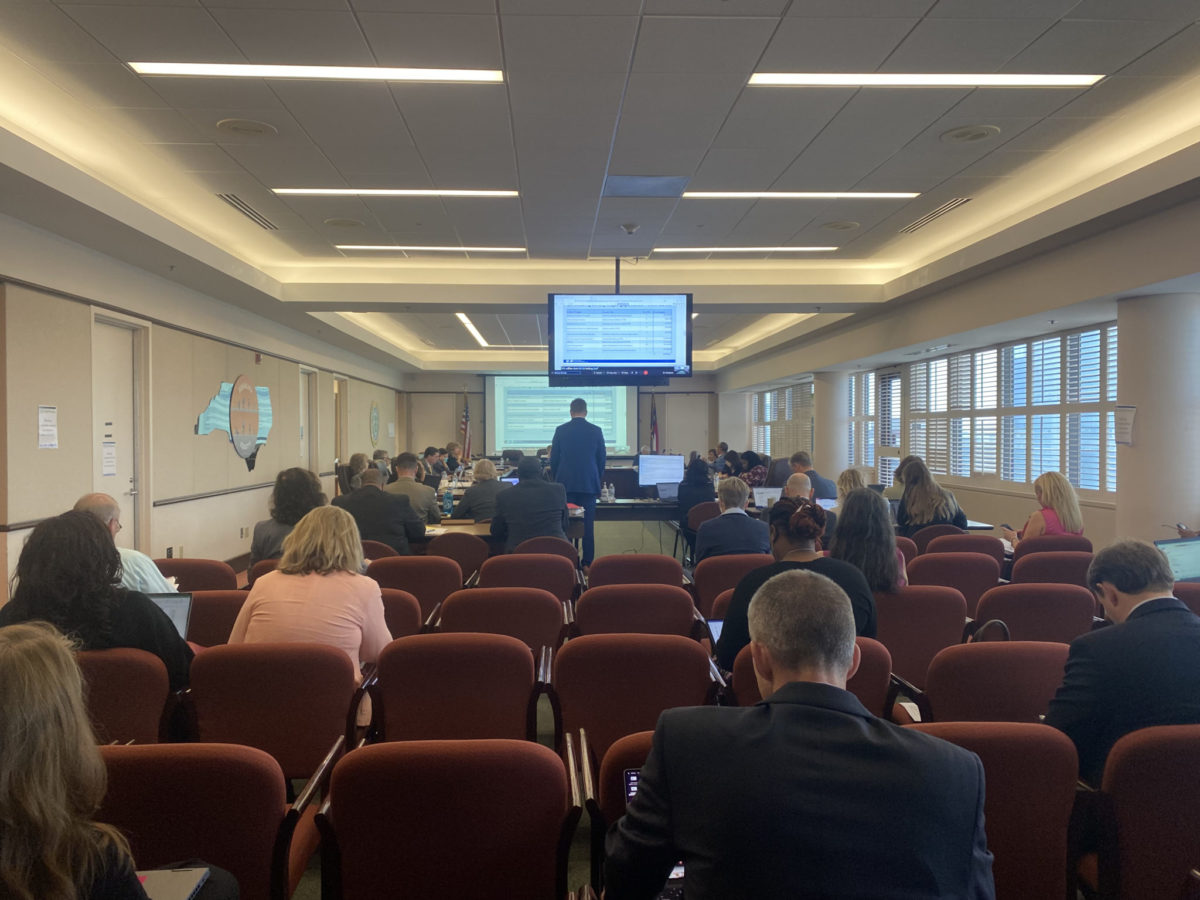
Share this story
- The State Board of Education heard an update from State Superintendent Catherine Truitt on her controversial Parent Advisory Commission. Find out next steps in the process of choosing the participants.
- Fuel prices are jumping, the State Board legislative priorities are a work in progress, and the state Superintendent's Parent Advisory Commission is being considered... find out what you missed at the State Board of Education.
The State Board of Education met this week, tackling and hearing about all sorts of topics, including an update on state Superintendent Catherine Truitt’s Parent Advisory Commission. The Board also weighed in on a potential new plan for teacher licensure, as well as a report on changing how per-pupil funding happens in North Carolina.
Below you can learn about what else you missed at the Board this week.
Parent Advisory Commission update
Truitt faced quite a bit of criticism when she announced the opening of applications for a Parent Advisory Commission back in February. Much of that criticism had to do with the relatively large number of non-public school parents that would be included.
Each of the state’s eight education regions will be represented by six parents or guardians on the commission with the following makeup:
- Two from traditional public schools.
- One from a charter school.
- One from a homeschool.
- One from a private school.
- One “at-large public-school member from the largest county in each of the 8 regions, including: Buncombe, Catawba, Cumberland, Guilford, Mecklenburg, New Hanover, Pitt, Wake.”
The commission would have a total of 48 parents, 16 of whom would not be representing any kind of public school.
Board Vice Chair Alan Duncan went further last month, saying that when considering just representatives of traditional public schools, the make-up of the commission only guaranteed a 33% representation. In contrast, 78% of the state’s students are traditional public school students, he said, so the make-up of the commission won’t be representative.
Some questions were left unanswered last month, including the make-up of the committee that would sift through applications and the criteria that would be used to pick parents.
Board member James Ford asked Truitt if she had answers to any of those questions during the Board meeting this week. She was able to elaborate.
Here is a list of the Department of Public Instruction (DPI) staffers who will go through applications:
- Lynne Barbour, deputy director of the Office of Learning Recovery and Acceleration.
- Karen W. Fairley, executive director of the Center for Safer Schools.
- Mary Hemphill, director of Academic Standards for Curriculum & Instruction.
- Trey Michael, director of Career and Technical Education.
- David Stegall, deputy superintendent of Innovation in the Office of Innovation.
- Kiah Stith, program coordinator in the Office of the Superintendent.
- Chris Stone, intern of Legislative Affairs.
- Sherry Thomas, director of Exceptional Children Division in the Office of Educational Equity.
- LaTricia Townsend, director of the Federal Program Monitoring and Support Division.
- Tabari Wallace, special advisor to the Superintendent on Principal Engagement.
- Amy Rhyne, director of the Office of Early Learning.
- Thomas Tomberlin, director of Educator Recruitment and Support.
- Catherine Truitt, superintendent of Public Instruction.
Truitt said that DPI had received about 3,500 applications. But of those, only 693 were fully completed. She said that if an application was incomplete, it was thrown out. This includes people who didn’t include a reference, though Truitt added that a reference letter wasn’t required, just a name and phone number.
Truitt said the DPI committee will whittle down the 693 completed applications to 150 using a rubric. This article will be updated to include the rubric when EducationNC receives it.
Once the number of applications is down to 150, Truitt said she will join the committee to try to narrow down the applications even further. She said this point is also when the committee will start considering questions of adequate representation and voice.
Legislative priorities
It may feel like only yesterday that the General Assembly closed its long session, but the short session is right around the corner, and Board members began discussing what they want their legislative priorities to look like.
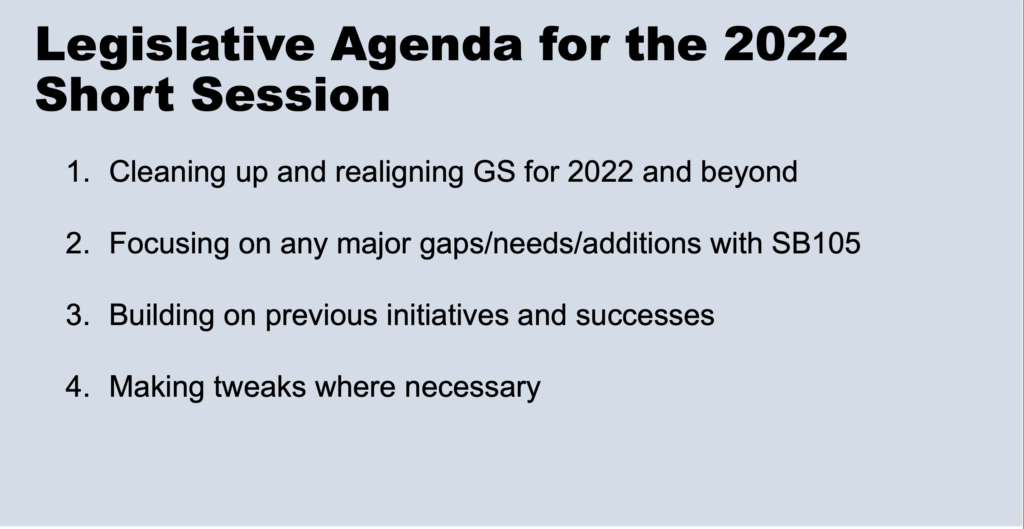
Included so far are about $15.5 million in requests, including money for an internship program for school psychologists, more staff for the office of charter schools, and additional turnaround coaches in the DPI department in charge of helping low-performing schools.
Board member Wendell Hall, chair of the committee working on the priorities, said he also wanted to see requests added for other items, including social workers.
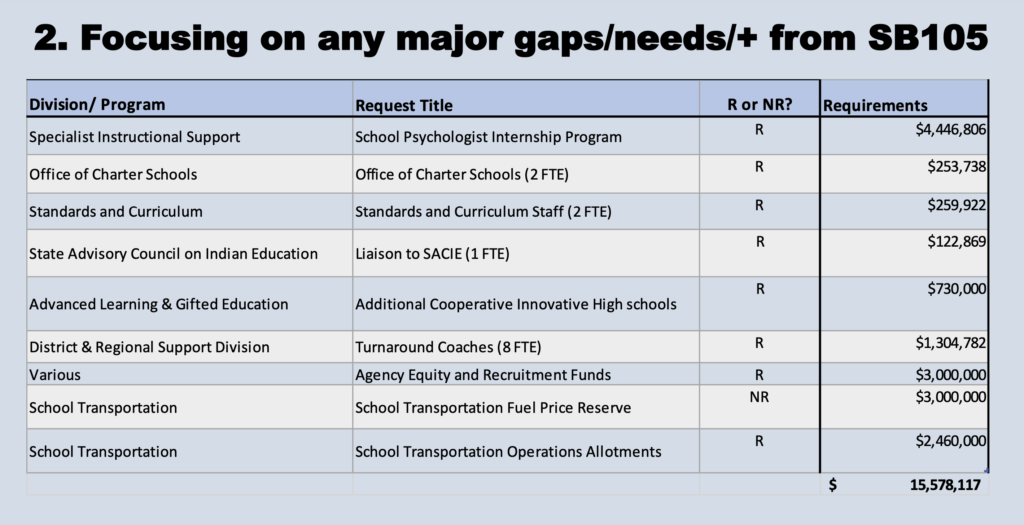
The psychologist internship program would help build a pipeline for school psychologists. While there is some money for districts to hire for these positions, there is a dearth of people applying for them.
The request for the Office of Charter Schools comes at a point at which the state has more than doubled the number of charter schools it had before the 100-school cap was lifted in the early 2010s. Despite the increase in charter schools, there hasn’t been an increase in staff.
The school transportation line items are to help deal with the radical increase in fuel prices as the war between Russia and Ukraine rages.
To see the legislative priorities discussed this week, go here, or see below.
Fuel prices
The war between Russia and Ukraine has led to a rise in prices at the fuel pumps, and that is impacting schools, which, of course, need something to keep their school buses going. But even before the war, prices were up.
The budgeted amount of diesel fuel is set at $2.10/gallon, and districts use about 26 million gallons of fuel a year. Meanwhile, for much of 2021-22, the average diesel price was $2.69.
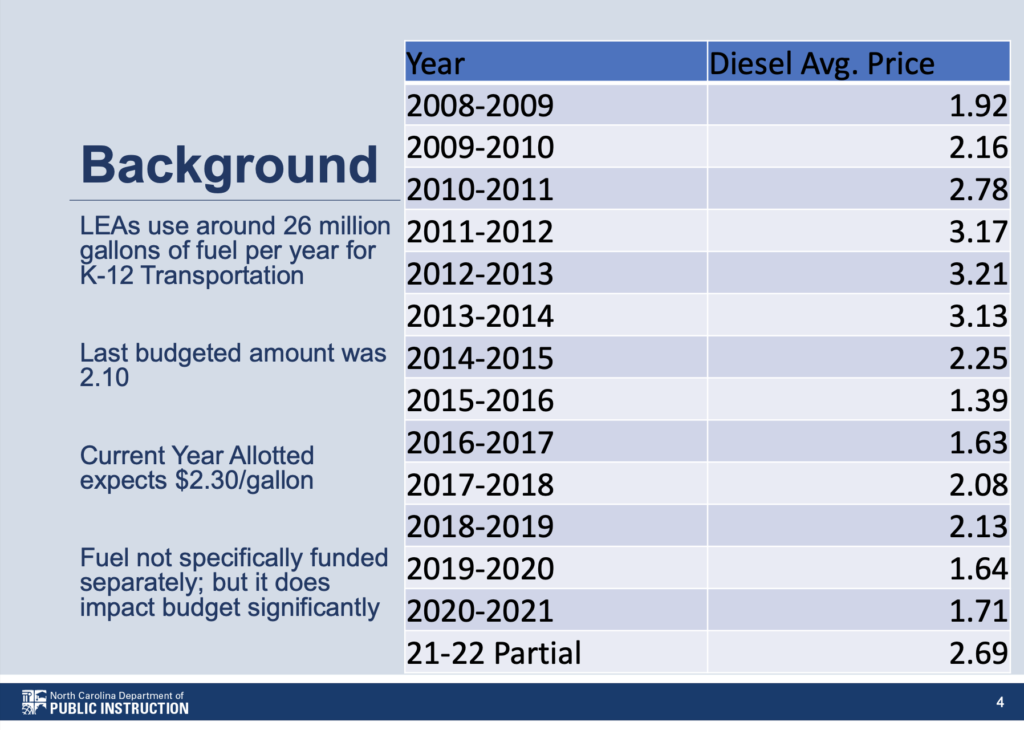
And, as you can see in the slide below, prices in March were volatile and even higher than previous numbers.

DPI began accepting requests for more money for fuel from districts this week.
Fuel prices often go up around significant events such as hurricanes, wars, or other unexpected situations. One possible solution DPI is exploring is asking the General Assembly for a fuel reserve fund that can be tapped into in the event of an emergency.
See the presentation on fuel prices here or read it below.
Innovative School District
The 2021 long session budget ended the Innovative School District. The legislation creating this district was passed in 2016 and was meant to eventually include five low-performing schools from around the state that could be turned over to charter school operators. The schools were expected to have charter-like flexibility and be able to take advantage of the innovations that flexibility affords.
However, the program went though numerous changes and was never able to get more than one school onboard.
The most recent budget called for the Innovative School District to continue to operate its sole school — Southside-Ashpole Elementary School — until 2023-24 at the latest, when it would be returned to the Public Schools of Robeson County.
Freddie Williamson, superintendent of the Public Schools of Robeson County, said back in December that the district was ready to have the school back and was already working with the school and the ISD to prepare for a “smooth, seamless transition.”
At this week’s Board meeting, Board members got another update, including confirmation that Southside-Ashpole would move back to Robeson County Public Schools by July 1, 2022.
Lab School
The Board approved a new laboratory school from UNC-Chapel Hill this week. This lab school will become the eighth in the state.
The UNC System is supposed to open nine laboratory schools in the state by 2022. These schools are supposed to fulfill three goals: improve “outcomes of K-8 students from low-performing settings” and “strengthen” both teacher and principal preparation.
There are currently six lab schools. The Board approved in February a seventh one to be opened by Appalachian State University. It will be that university’s second lab school.
The school approved by the Board this month will be UNC-Chapel Hill’s first.
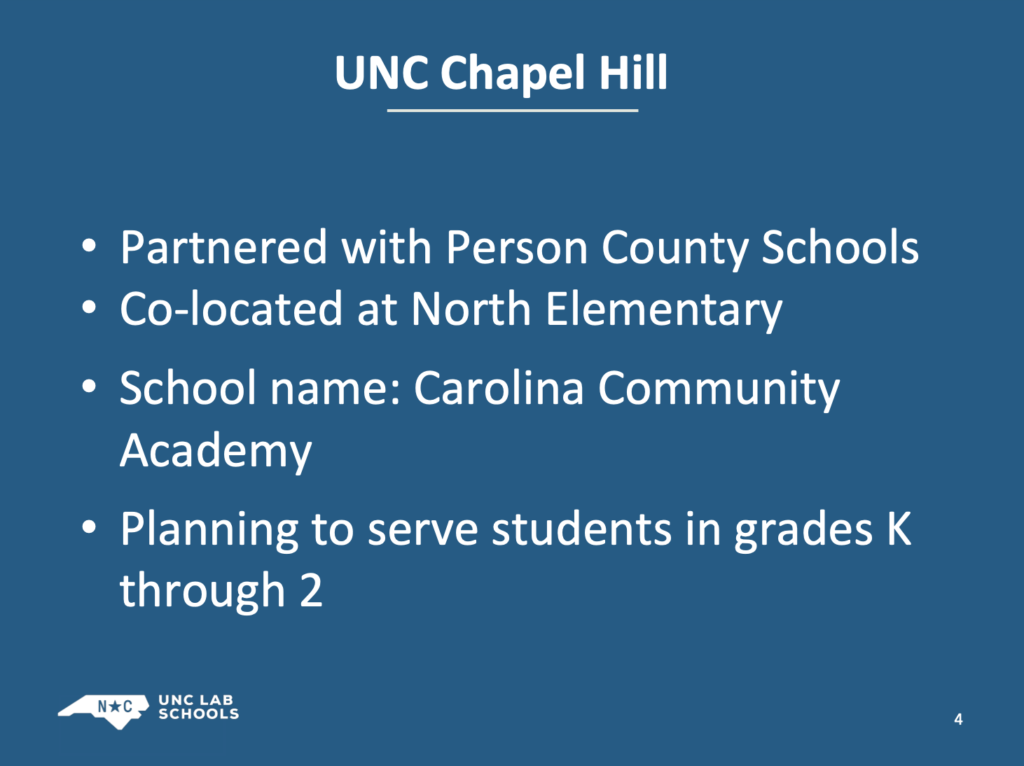
Recommended reading
